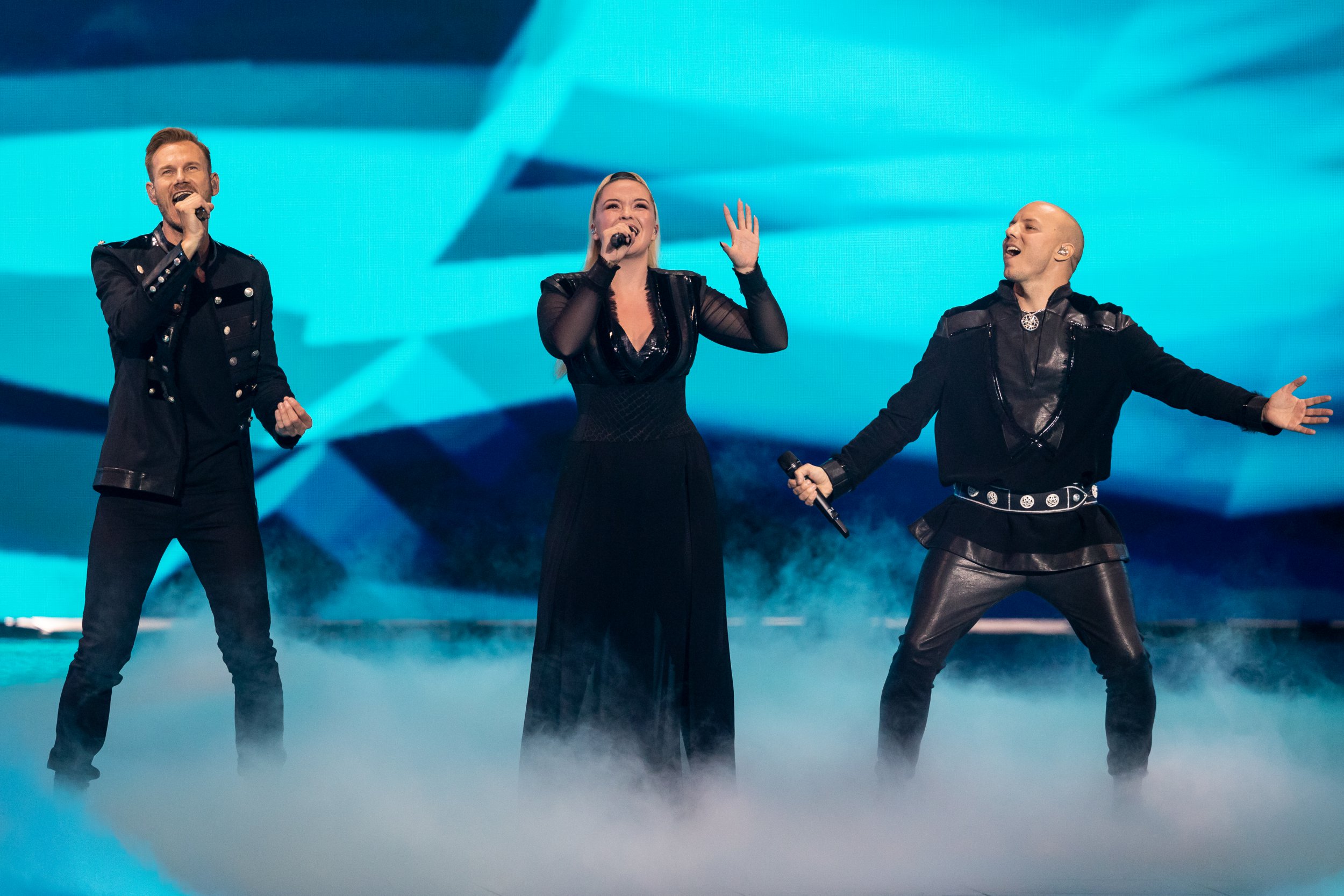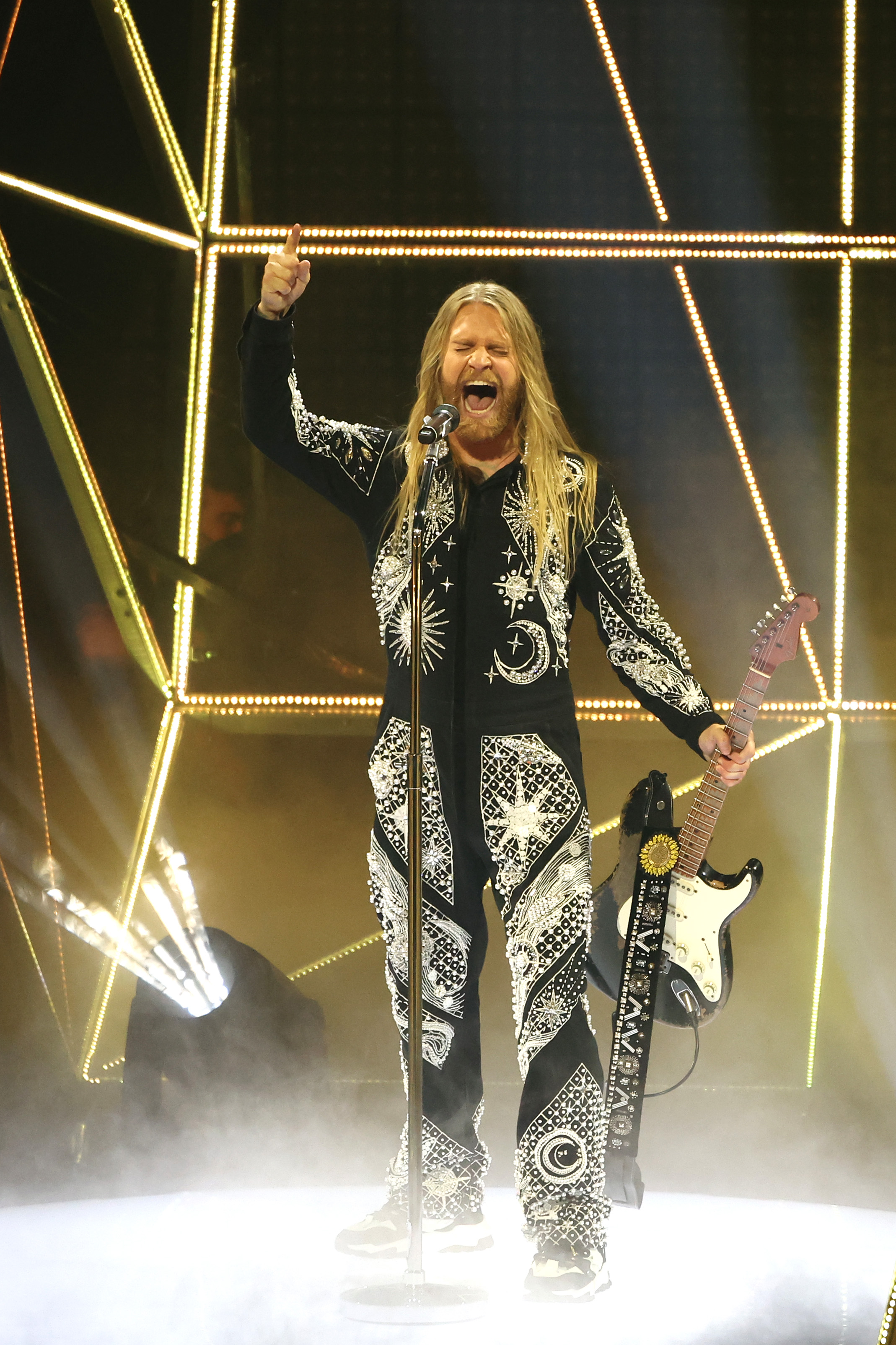
The has touched down, as the .
We’re stepping in to stage the event on behalf of 2022 winners , as the UK finished second in Turin last year with .
All eyes are now to see if she can do one better and hand the UK its sixth victory with – which means we’d get to host again in 2024.
Of course, she’d need to nab taking part – over two semi-finals and the grand final on Saturday, May 13, which the UK is automatically qualified for.
But how does Eurovision voting work – and can the UK vote in the semi-finals despite not taking part?
Here’s what you need to know…
How does the Eurovision voting work?
We know that Eurovision voting can get a bit confusing at times, with juries popping up all over the shop and handing out douze points left right and centre.
It gets even harder to keep up when you add the public votes into the mix.
So to keep things really simple, here’s how it all works.
Basically, the voting in the grand final is split 50/50 between jurors and public, with the jury vote decided upon by a panel of five music industry experts from each of the participating countries.
The jurors will each rank their top 10 songs, giving 12 points and 10 points to their top two choices, and the remaining eight tracks points ranging from one to eight.
Nine and 11 points never feature, for reasons which aren’t quite clear…

These points are given out in the first half of the voting during the night of the final, announced by jury representatives who appear on screen.
The second half of the voting consists of announcing the public votes– which once again see the votes from each country broken down into one to eight, 10 and 12 points given for the most popular songs.
In the case of the public vote, the points given to each song are added up into one figure, which is announced in the second half of the voting.
How can this change things?
Since the public vote is revealed in the order the countries finished in the jury vote, tension builds as the points can change the entire outlook of the scoreboard.
One example of this came when Norway’s fan favourite Spirit In The Sky picked up just 40 points from the juries in 2019 – but .
They scored more public votes than the Netherlands – the victors that year – and Norway ultimately finished the night in sixth place.

Serbia also benefitted from the public vote in 2022, scoring 87 points from the juries and 225 from televoting to snatch fifth place on the leaderboard.
On the flip side: spare a thought for Switzerland’s Marius Bear, who picked up a respectable 78 points from the juries in 2022, only to end up with a big fat ‘nul points’ from the televote.
Thank goodness …
When was the new voting system introduced?
The current Eurovision voting system has been in place since 2016.
Prior to this, the jury and public votes were simply combined to give one overall set of points from each country, which was announced on the night.
While a good score in one can give you a boost, generally the winning song will have done well with both juries and public – but they don’t necessarily need to win either vote to win the contest since the two votes are combined.
Since the new system was introduced, only one winner – Portugal’s Salvador Sobral in 2017 – has topped both the jury and the public vote.
Last year, while Ukraine won the televote and the contest overall, Sam Ryder won the jury vote for the UK – allowing viewers the experience of seeing the UK in pole position for the first time in years.
In recent years, both the jury and the public have been used to decide the outcome of the semi-finals and the grand final – but things are different this year.
While the final will still be a mix of juries and public, the semi-finals will be decided entirely by public vote.
Can the UK vote in the semi-finals?
The UK does not compete in the semi-finals, as we automatically receive a place in the finals.
We’re part of the ‘Big Five’ – aka the countries who are the biggest financiers of the contest – along with France, Germany, Italy and Spain.

The previous year’s winners and host nation (normally one and the same) also receive an automatic place.
Although the UK does not have to compete at this stage, each of the automatic qualifiers in one of the semi-finals – which one is decided in the allocation draw.
This year, the UK is voting in the second semi-final on Thursday, May 11. You’ll be able to vote via phone or text, with details of how to do this revealed on the night.
Alternatively, you’ll be able to vote via the Eurovision Song Contest app.
The Eurovision Song Contest’s second semi-final airs on Thursday, May 11 on BBC One at 8pm. The grand final airs on Saturday May 13 on BBC One at 8pm.
Follow Metro across our social channels, on Facebook, and
Share your views in the comments below




















